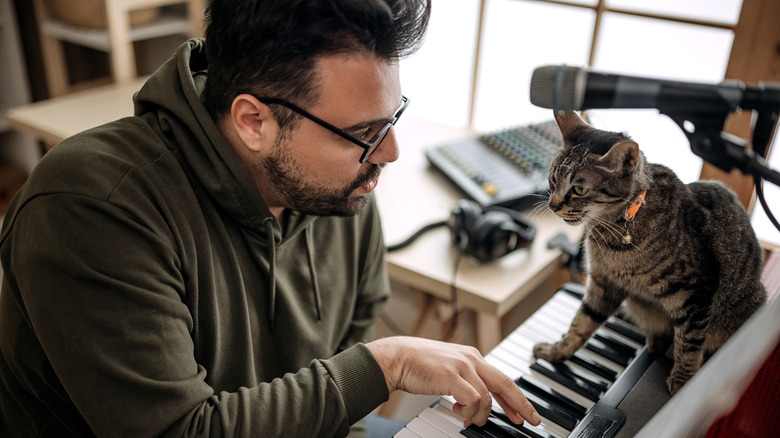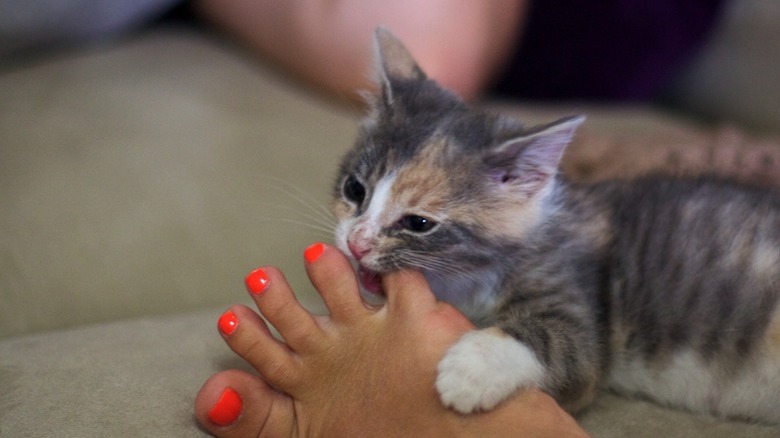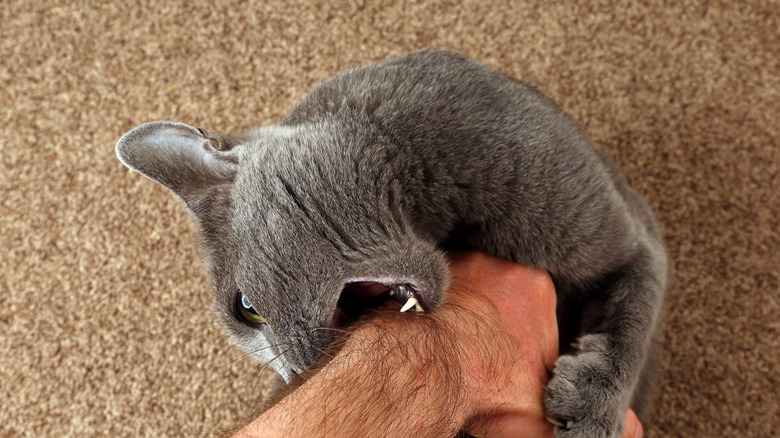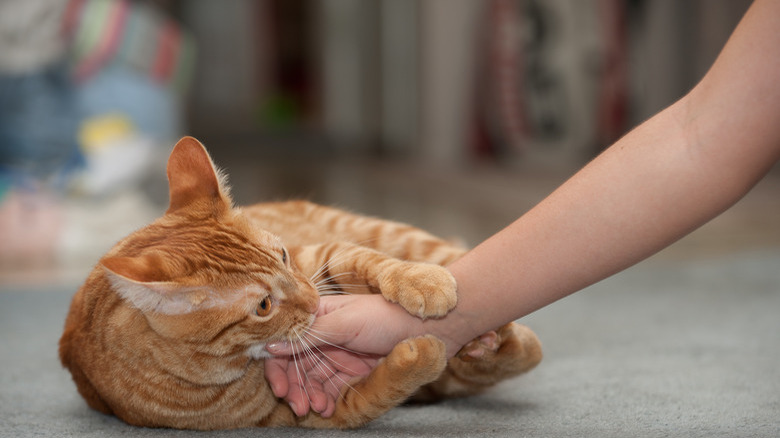Why Does My Cat Bite Me When I Sing?
Sometimes, you just have to share your music with the world. Whether it's belting out a song while cleaning or singing along with your favorite movie, sometimes we've just got to let our inner The Voice audition out.
However, things can get a little weird with pets around, particularly cats. Have you ever experienced the totally bizarre sensation of your cat biting you when you sing? That's one way to downvote your singing voice, but it may not be that they're just judging your bad pitch. We dug into the source of this odd behavior to find some answers.
If your cat bites you when you sing, you're not alone
Whether it's at the ankles, toes, the hands, or even the face, cat owners across the internet are experiencing the same phenomenon.
One Reddit user described, "I am a soprano, and do not frequently sing at home. I have two cats, and my female cat gets agitated when I sing notes in my soprano range at high volume and fast vibrato – so much so that she tries to jump up and bite my nose or upper lip!"
On Catsite, another user describes, "every time I start singing, just about anything, loudly, my cat gets really excited. She runs over and starts biting my feet..."
On Yahoo! answers, a user experienced, "why does my cat bite me when i sing? my cat bite runs to me and puts her face into mine and bites me. but when i stop she purrs lol. she's so cute!"
And as with anything online, multiple questions spawn even more theories as to the explanation. Some users suggest that it might have something to do with the pitch of the singing. Others suggest that cats are enjoying the music and want to join in the fun. Still others believe that it's just a matter of your cat wanting attention. And as far as online comments go, they're probably right. Though many of us experience this strange behavior, there's no single explanation for why cats nip at us when we sing, but we can get an idea of what's going through our cats' minds when they do this.
Cats aren't exactly big fans of
While we may enjoy listening to music and singing, the same can't be said of our feline friends. According to a recent study, cats don't necessarily like our kind of music. In order for cats to respond positively to music, they need to hear species-specific music. They prefer sounds and tones that remind them of the sounds and tones they use to communicate with other cats.
Authors of the study and psychologists at the University of Wisconsin Megan Savage and Charles Snowdon explained, "we have developed a theoretical framework that hypothesizes that in order for music to be effective with other species, it must be in the frequency range and with similar tempos to those used in natural communication by each species." The study played songs calibrated for cats as well as classical music for humans, and it was very clear that the cats preferred the "cat music." So unless your favorite song sounds like a cat's meow, your cat probably isn't very impressed with it.
Cats have highly sensitive ears.
A cat's ears are much more sensitive than a human's ears, so what might sound like a normal volume to us can sound like a cacophony to our kitties. Cats also hear a much greater range of sound frequencies, both higher and lower. Because their ears are more sensitive than ours, cats are also very sensitive to loud noises, so your attempt at a Tony Award-winning performance might be too loud and overstimulate your cat.
Cats often give their humans
Cats are highly sensitive animals. They spend so much of their time watching and observing the world around them that any change or disturbance to their environment can have a profound affect on them. They can become easily overstimulated, and when they become overstimulated, they might lash out. Some kitties lash their tail or hiss, but others might bite or nip.
Bites may start nicely, such as with a small nibble or love bite. Cat behaviorist Jackson Galaxy explains that these love bites are often caused by cats being overstimulated by petting. But it can also result from other overstimulation—like the overstimulation that might come from the songs you're singing.
Cats also offer little nips when they want attention or want to play.
On the other side of the coin, your singing may inspire your kitty to want to play. In response to a question about a cat biting to get their human's attention, Feline Behavior and Training Professional Dr. Marci Koski explained that running over to nip and bite may be a signal that kitty wants some playtime.
Dr. Koski explained, "She's trying to get your attention in ways that will get you to engage with her; pouncing at a leg or arm then jumping back is kind of like "tag – you're it!". This is generally not an attack from anger [...] If she's doing this silently and bouncing back waiting for you to reciprocate, it's mostly likely what we call play aggression."
Because singing often changes our attitude and posture, it's possible your cat is reading it as an invitation for playtime. They may just want to get in on the fun!
And in the end, all cats are different.
There's no one explanation for why cats bit you while you sing, because our kitties all have different personalities, different tolerance for human music, and different ways of expressing yourself. If you notice your cat biting you while you sing, perhaps try to change it up. Change the pitch of your song or the volume and see if that calms them down. Or, if your singing does make them want to play, spend a little time playing with your cat. With a little attention to your kitty's behavior, you'll be harmonizing in no time!



